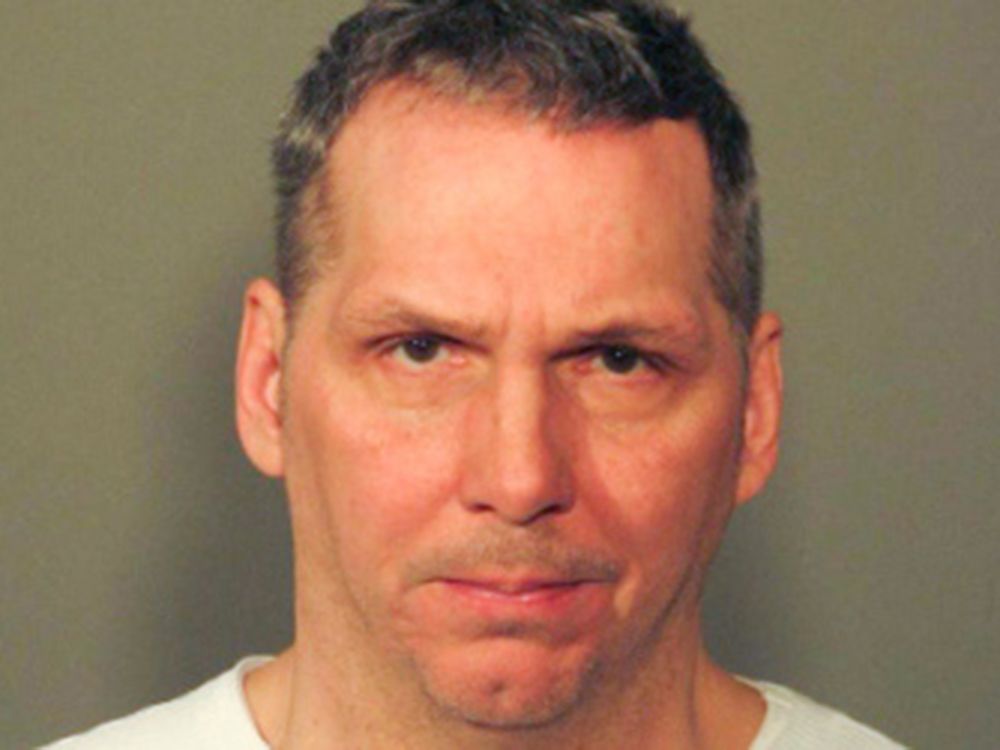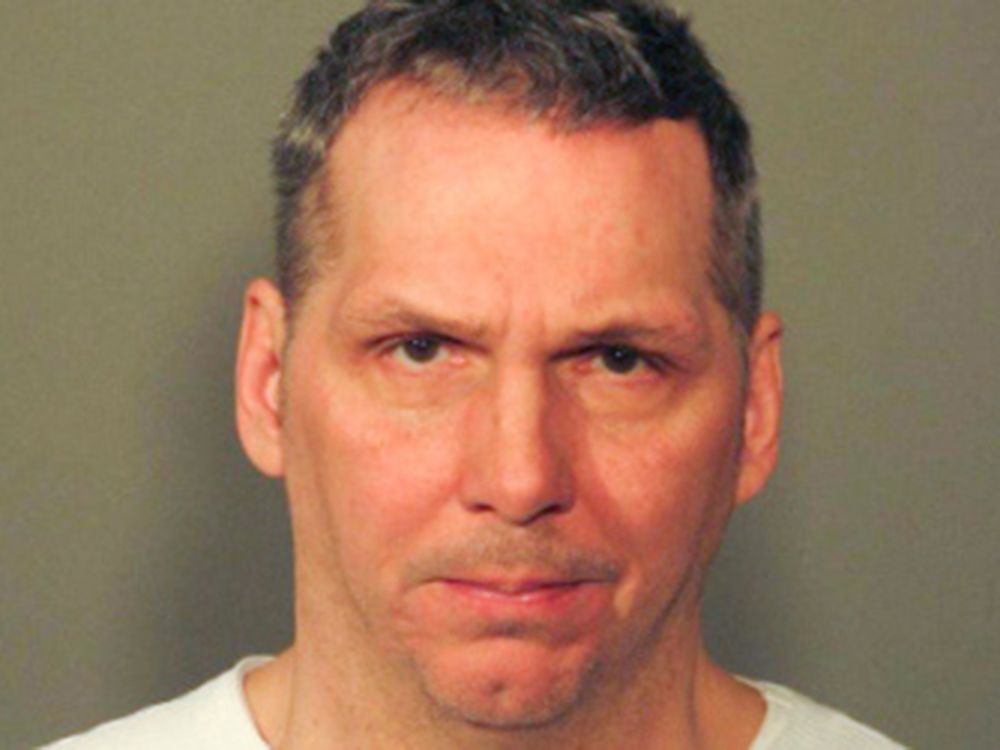
A reputed Montreal gangster who admits he’s addicted to crime has been denied full parole, but he’ll get out of prison next month anyway.
A judge sentenced Jeffrey Robert Colegrove in January of 2017 to nine years and nearly eight months in prison for dealing drugs out of a quiet street in Dollard-des-Ormeaux while he was on the lam from a previous sentence he received in 1997 for cocaine trafficking.
“You stated that your criminality is an addiction to making money through crime. You acknowledged that despite trying other jobs, it has been difficult for you to stay away from crime, for greed and because you felt wired to make a living that way,” said the recent decision denying him full parole.
“While you say that you now want to stay away from crime, your criminal history and a lifetime of reoffences show poor self-control to refrain from reoffending.”
Colegrove, now 59, was charged in 2019 for managing a distribution network from his Quebec prison cell that moved cocaine, cannabis and fentanyl destined for Nova Scotia.
But the Nova Scotia charges against Colegrove, who is allegedly part of Montreal’s West End Gang, which the parole board identifies as Irish organized crime, were dropped in the spring of 2022 because some of his telephone calls from the Donnacona Institution, a maximum-security prison near Quebec City, were recorded illegally.
“Your (case management team) notes that you are a career criminal, who engaged in drug trafficking for quick and easy profit. They mention that your values demonstrate the importance you place on the drug subculture and violence, which includes weapons, respect, following a hierarchy, and the law of silence,” said the July 2 decision denying Colegrove full parole.
“Contrarily, you do not place importance on respecting societal laws or institutional rules. Your caseworkers mention that you do not show regard for others, and that you display an arrogant and self-centred attitude.”
Colegrove has a lengthy criminal history.
He escaped from a minimum-security penitentiary in March of 2003, and was only found six years later, in June 2009.
Colegrove slipped away from his handlers, going “unlawfully at large” two more times. Once, in May 2012, when he was only found 626 days later. He vanished again in October 2014. Authorities tracked him down 144 days later.
Colegrove will get out of prison Aug. 21 on statutory release, the law that requires federal offenders who have served two-thirds of a fixed-length sentence be released to serve the remainder of their sentence in the community, under supervision.
The parole board placed conditions on that release in the same decision that denied Colegrove full parole. Those include staying away from criminals, alcohol and drugs. He must live in a halfway house and be either “gainfully employed,” looking for work, upgrading his education or pursuing volunteer gigs.
Colegrove will only be allowed to have one mobile phone and one SIM card for the device. He’s also supposed to provide his parole officer “with detailed billing statements showing all incoming and outgoing calls,” and unlock the phone so his minder can check his texts, call logs, emails and social media.
Colegrove was arrested in February 2015 for being unlawfully at large, said his parole decision. “However, during your arrest, the items seized revealed that you were involved in a sophisticated criminal operation ranging from false identifications to equipment used to follow police frequencies and to thwart surveillance. Police found money and a large quantity of illicit drugs (cocaine, cannabis, hashish, and methamphetamine pills).”
Investigators found accounting documents that showed Colegrove had done $3,845,910 in transactions “related to illicit dealings,” said the decision, which notes they also discovered “large quantities of hard drugs (2,222 grams of cocaine including crack).”
Police also found loaded guns at the scene, but Colegrove was acquitted of firearms possession charges, said the decision, which notes he’s banned from having guns. “The court did not find any mitigating factors in your case but did identify several aggravating factors which included the quantity and nature of the drugs, the objective gravity of the offence, which is punishable by life imprisonment, the use of a residence in a quiet residential area, as well as your profile as a career criminal with a specialty in narcotics trafficking.”
Colegrove denied any “active affiliation to traditional organized crime,” said the decision. “You stated that you acted on your own at all stages of your crimes.”
Colegrove told the parole board he “grew up in a dysfunctional family environment” and that his parents had substance abuse issues. “You mention having been brought up in crime and knowing nothing else.”
Colegrove got out of prison on statutory release in June 2023, but it didn’t last long.
“On July 13, 2023, you were paid an impromptu visit while you were at a park,” said his parole decision. “You were asked to hand over your cell phone so that your caseworkers could verify your compliance with your special condition related to telecommunications.”
They discovered an application on his phone that could be used to send encrypted messages, said the decision. “You stated that you used the application to watch news about the war in Russia.”
Colegrove’s handlers also “noticed that your recent internet search involved ‘Hells Angels news,’” as well as his own name “and the name of the man you claimed to be the source of your security concerns.”
Colegrove was “found in possession of a second cell phone, wrapped in multiple plastic bags, covered in soil and leaf residue, suggesting that the cell phone had previously been buried. You explained that it was an old cell phone, which your (case management team) knew about,” said the decision, which notes they “immediately refuted this claim.”
Colegrove “refused to unlock the device, despite (his) telecommunications condition,” and police immediately arrested him.
“Since your return to a medium-security institution, you received a minor disciplinary report for disobeying orders. It was determined that you had an important standing as some inmates were cooking and cleaning for you.”
Colegrove reports “having significant savings and no debt,” said the decision.
Colegrove’s case management team recommended the board deny him full parole because he wasn’t involved in his correctional plan, the decision said. “Your more recent conformist speech appears thus more utilitarian than sincere.”
The parole board determined Colegrove would “represent an undue risk to society if released on full parole.”
Our website is the place for the latest breaking news, exclusive scoops, longreads and provocative commentary. Please bookmark nationalpost.com and sign up for our daily newsletter, Posted, here.
